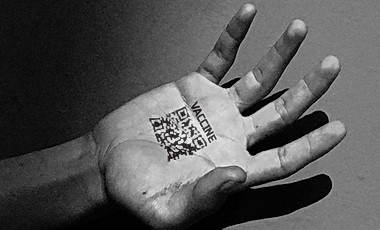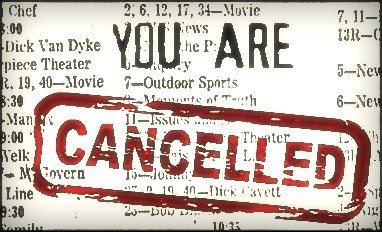Wow. Hannah Arendt. The Renegade Institute for Liberty at Bakersfield College posted this by her:
This constant lying is not aimed at making the people believe a lie, but at ensuring that no one believes anything anymore.
A people that can no longer distinguish between truth and lies cannot distinguish between right and wrong.
And such a people, deprived of the power to think and judge, is, without knowing and willing it, completely subjected to the rule of lies. With such a people, you can do whatever you want.”
– Hannah Arendt
So I did some digging since I came across this post by RILBC, this author/philosopher is new to me — I think. I may have come across her in the past, mentioned by an author I was reading in the past, but below are some quotes and media.
The Banality of Evil: How Ordinary People Do Terrible Things?
In this deeply thought-provoking video, we explore the disturbing concept of ‘the banality of evil,’ coined by philosopher Hannah Arendt after witnessing the trial of Nazi Adolf Eichmann. Arendt’s work forces us to confront the truth that even ordinary people can commit monstrous acts when they surrender their critical thinking and moral compass. We’ll examine how systems can corrupt, the dangers of blind obedience, and the importance of cultivating empathy, questioning authority, and maintaining our individual responsibility in a complex world.
By Foundation for Economic Education (FEE):
Nine months after the Nazi war criminal Adolf Eichmann died at the end of a noose in Israel, a controversial but thoughtful commentary about his trial appeared in The New Yorker. The public reaction stunned its author, the famed political theorist and Holocaust survivor Hannah Arendt (1906-1975). It was February 1963.
Arendt’s eyewitness assessment of Eichmann as “terribly and terrifyingly normal” took the world by surprise. Her phrase, “the banality of evil,” entered the lexicon of social science, probably forever. It was taken for granted that Eichmann, despite his soft-spoken and avuncular demeanor, must be a monster of epic proportions to play such an important role in one of the greatest crimes of the 20th Century.
“I was only following orders,” he claimed in the colorless, matter-of-fact fashion of a typical bureaucrat. The world thought his performance a fiendishly deceptive show, but Hannah Arendt concluded that Eichmann was indeed a rather “ordinary” and “unthinking” functionary.
How callous! A betrayal of her own Jewish people! How could any thoughtful person dismiss Eichmann so cavalierly?! Arendt’s critics blasted her with such charges mercilessly, but they had missed the point. She did not condone or excuse Eichmann’s complicity in the Holocaust. She witnessed the horrors of national socialism first-hand herself, having escaped Germany in 1933 after a short stint in a Gestapo jail for “anti-state propaganda.” She did not claim that Eichmann was innocent, only that the crimes for which he was guilty did not require a “monster” to commit them.
How often have you noticed people behaving in anti-social ways because of a hope to blend in, a desire to avoid isolation as a recalcitrant, nonconforming individual? Did you ever see someone doing harm because “everybody else was doing it”? The fact that we all have observed such things, and that any one of the culprits might easily, under the right circumstances, have become an Adolf Eichmann, is a chilling realization.
As Arendt explained, “Going along with the rest and wanting to say ‘we’ were quite enough to make the greatest of all crimes possible.”
Eichmann was a “shallow” and “clueless” joiner, someone whose thoughts never ventured any deeper than how to become a cog in the great, historic Nazi machine. In a sense, he was a tool of Evil more than evil himself.
Commenting on Arendt’s “banality of evil” thesis, philosopher Thomas White writes, “Eichmann reminds us of the protagonist in Albert Camus’s novel The Stranger (1942), who randomly and casually kills a man, but then afterwards feels no remorse. There was no particular intention or obvious evil motive: the deed just ‘happened.’”
Perhaps Hannah Arendt underestimated Eichmann. He did, after all, attempt to conceal evidence and cover his tracks long before the Israelis nabbed him in Argentina in 1960—facts which suggest he did indeed comprehend the gravity of his offenses. It is undeniable, however, that “ordinary” people are capable of horrific crimes when possessed with power or a desire to obtain it, especially if it helps them “fit in” with the gang that already wields it.
The big lesson of her thesis, I think, is this: If Evil comes calling, do not expect it to be stupid enough to advertise itself as such. It’s far more likely that it will look like your favorite uncle or your sweet grandmother. It just might cloak itself in grandiloquent platitudes like “equality,” “social justice,” and the “common good.” It could even be a prominent member of Parliament or Congress.
Maximilien Robespierre and Louis Antoine de Saint-Just, I suggested in a recent essay, were peas in the same pod as Eichmann—ordinary people who committed extraordinarily heinous acts.
Hannah Arendt is recognized as one of the leading political thinkers of the Twentieth Century. She was very prolific, and her books are good sellers still, nearly half a century after her death. She remains eminently quotable as well, authoring such pithy lines as “Political questions are far too serious to be left to the politicians,” “The most radical revolutionary will become a conservative the day after the revolution,” and “The sad truth of the matter is that most evil is done by people who never made up their minds to be or do either evil or good.”
Some of Arendt’s friends on the Left swallowed the myth that Hitler and Stalin occupied opposite ends of the political spectrum. She knew better. Both were evil collectivists and enemies of the individual (see list of suggested readings below). “Hitler never intended to defend the West against Bolshevism,” she wrote in her 1951 book The Origins of Totalitarianism, “but always remained ready to join ‘the Reds’ for the destruction of the West, even in the middle of the struggle against Soviet Russia.”
[….]
- Why Read Hannah Arendt Now? by Richard J. Bernstein
- Eichmann in Jerusalem: A Report on the Banality of Evil by Hannah Arendt
- What Did Hannah Arendt Really Mean by the ‘Banality of Evil’? by Thomas White
- Two Monsters of the French Revolution Who Were Consumed by Power—And Lost Their Heads on the Same Day by Lawrence W. Reed
- What the Nazis Had in Common With Every Other Collectivist Regime of the 20th Century by Lawrence W. Reed
Separation of Powers | Hannah Arendt (1973)
With the recent American political hoopla, I figured this clip of political philosopher, Hannah Arendt, would be a fun short listen for the thinker. This is the beginning part of a longer file found here on Philosophy Overdose’s YouTube:
And this is a great bunch of snippets at THE NEW YORK REVIEW [Of Books]:
Totalitarianism begins in contempt for what you have. The second step is the notion: “Things must change—no matter how, Anything is better than what we have.” Totalitarian rulers organize this kind of mass sentiment, and by organizing it articulate it, and by articulating it make the people somehow love it. They were told before, thou shalt not kill; and they didn’t kill. Now they are told, thou shalt kill; and although they think it’s very difficult to kill, they do it because it’s now part of the code of behavior. They learn whom to kill and how to kill and how to do it together. This is the much talked about Gleichschaltung—the coordination process. You are coordinated not with the powers that be, but with your neighbor—coordinated with the majority. But instead of communicating with the other you are now glued to him. And you feel of course marvelous. Totalitarianism appeals to the very dangerous emotional needs of people who live in complete isolation and in fear of one another.
Lies
The moment we no longer have a free press, anything can happen. What makes it possible for a totalitarian or any other dictatorship to rule is that people are not informed; how can you have an opinion if you are not informed? If everybody always lies to you, the consequence is not that you believe the lies, but rather that nobody believes anything any longer. This is because lies, by their very nature, have to be changed, and a lying government has constantly to rewrite its own history. On the receiving end you get not only one lie—a lie which you could go on for the rest of your days—but you get a great number of lies, depending on how the political wind blows. And a people that no longer can believe anything cannot make up its mind. It is deprived not only of its capacity to act but also of its capacity to think and to judge. And with such a people you can then do what you please.
Contingency and History
The main characteristic of any event is that it has not been foreseen. We don’t know the future but everybody acts into the future. Nobody knows what he is doing because the future is being done, action is being done by a “we” and not an “I.” Only if I were the only one acting could I foretell the consequences of what I’m doing. What actually happens is entirely contingent, and contingency is indeed one of the biggest factors in all history.
Nobody knows what is going to happen because so much depends on an enormous number of variables, on simple hazard. On the other hand if you look at history retrospectively, then, even though it was contingent, you can tell a story that makes sense…. Jewish history, for example, in fact had its ups and downs, its, enmities and its friendships, as every history of all people has. The notion that there is one unilinear history is of course false. But if you look at it after the experience of Auschwitz it looks as though all of history—or at least history since the Middle Ages—had no other alm than Auschwitz…. This, is the real problem of every philosophy of history how is it possible that in retrospect it always looks as though it couldn’t have happened otherwise?
Facts and Theories
A good example of the kind of scientific mentality that overwhelms all other insights is the “domino theory.” The fact is that very few of the sophisticated intellectuals who wrote the Pentagon Papers believed in this theory. Yet everything they did was based on this assumption—not because they were liars, or because they wanted to please their superiors, but because it gave them a framework within which they could work. They took this framework even though they knew—and though every intelligence report and every factual analysis proved to them every morning—that these assumptions were simply factually wrong. They took it because they didn’t have any other framework. People find such theories in order to get rid of contingency and unexpectedness. Good old Hegel once said that all philosophical contemplation serves only to eliminate the accidental. A fact has to be witnessed by eyewitnesses who are not the best of witnesses; no fact is beyond doubt. But that two and two are four is somehow beyond doubt. And the theories produced in the Pentagon were all much more plausible than the facts of what actually happened.
Jews
The “giftedness”—so to speak—of a certain part at least of the Jewish people is a historical problem, a problem of the first order for the historians. I can risk a speculative explanation: we are the only people, the only European people, who have survived from antiquity pretty much intact. That means we have kept our identity, and it means we are the only people who have never known analphabetism. We were always literate because you cannot be a Jew without being literate. The women were less literate than the men but even they were much more literate than their counterparts elsewhere. Not only the elite knew how to read but every Jew had to read—the whole people, in all its classes and on all levels of giftedness and intelligence.
Evil
When I wrote my Eichmann in Jerusalem one of my main intentions was to destroy the legend of the greatness of evil, of the demonic force, to take away from people the admiration they have for the great evildoers like Richard III.
I found in Brecht the following remark:
The great political criminals must be exposed and exposed especially to laughter. They are not great political criminals, but people who permitted great political crimes, which is something entirely different. The failure of his enterprises does not indicate that Hitler was an idiot.
Now, that Hitler was an idiot was of course a prejudice of the whole opposition to Hitler prior to his seizure of power and therefore a great many books tried then to justify him and to make him a great man. So, Brecht says, “The fact that he failed did not indicate that Hitler was an idiot and the extent of his enterprises does not make him a great man.” It is neither the one nor the other: this whole category of greatness has no application.
“If the ruling classes,” he goes on, “permit a small crook to become a great crook, he is not entitled to a privileged position in our view of history. That is, the fact that he becomes a great crook and that what he does has great consequences does not add to his stature.” And generally speaking he then says in these very abrupt remarks: “One may say that tragedy deals with the sufferings of mankind in a less serious way than comedy.” This of course is a shocking statement; I think that at the same time it is entirely true. What is really necessary is, if you want to keep your integrity under these circumstances, then you can do it only if you remember your old way of looking at such things and say: “No matter what he does and if he killed ten million people, he is still a clown.”
Progress
The law of progress holds that everything now must be better than what was there before. Don’t you see if you want something better, and better, and better, you lose the good. The good is no longer even being measured.
Hannah Arendt (1964) – What Remains? (Full Interview with Günter Gaus)
An interview with Hannah Arendt about her life and work in 1964 with Günter Gaus. This is a version of an upload from the previous channel. The translation is my own, but parts also come from the published version by Joan Stambaugh. Note, this is actually the complete interview. For whatever reason, the other one with English captions on YouTube is missing almost 15 minutes, including what I take to be some of the most interesting parts, like the discussion of truth and the parts from her book the Human Condition. That’s the main reason I originally decided to put it up to begin with…plus I think my own translation is somewhat better and more accurate. The audio and video have also been improved.










